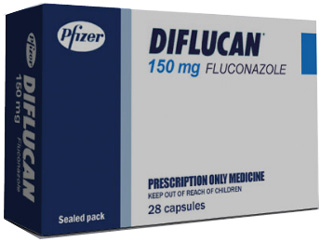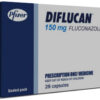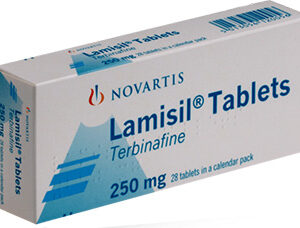Diflucan, also known as fluconazole, is an antifungal medication used for the treatment and prevention of various fungal infections. It belongs to the class of drugs called azoles and works by inhibiting the growth of fungi.
Common fungal infections that Diflucan can treat include vaginal yeast infections, oral thrush, esophageal candidiasis, and cryptococcal meningitis. It may also be used to prevent fungal infections in individuals with weakened immune systems, such as those undergoing chemotherapy or organ transplantation.
Diflucan is available in various forms, including tablets, oral suspension, and intravenous injection. The dosage and duration of treatment depend on the type and severity of the fungal infection.
Contraindications
While Diflucan is generally safe and well-tolerated, there are certain contraindications to consider before taking this medication:
- Known hypersensitivity to fluconazole or other azole antifungal agents
- Use of cisapride, pimozide, or quinidine
- Co-administration with other drugs that have the potential to prolong the QT interval, such as astemizole and terfenadine
- Liver or kidney impairment
- Pregnancy or breastfeeding
Managing Side Effects
Like any medication, Diflucan can cause side effects, although not everyone experiences them. Common side effects include:
- Headache
- Dizziness
- Nausea
- Abdominal pain
- Diarrhea
- Rash
If these side effects occur, they are usually mild and go away on their own within a few days. If they persist or worsen, it is advisable to consult a healthcare professional. Additionally, severe allergic reactions to Diflucan are rare but require immediate medical attention.
Diflucan Dosing
The dosing of Diflucan depends on the specific fungal infection being treated, as well as other individual factors such as age, overall health, and kidney function. The recommended dosages for common indications are as follows:
| Indication | Dosage |
|---|---|
| Vaginal yeast infection | A single 150 mg oral dose |
| Oral thrush | 200 mg on the first day, followed by 100 mg once daily for 14-30 days |
| Esophageal candidiasis | 200-400 mg on the first day, followed by 100-200 mg once daily for at least 3 weeks |
| Cryptococcal meningitis | Initial dose of 400 mg, followed by 200-400 mg once daily for 10-12 weeks or longer |
If a dose of Diflucan is missed, it should be taken as soon as remembered. However, if it is close to the next scheduled dose, the missed dose should be skipped and the regular dosing schedule resumed. It is important not to double the dose to make up for a missed one.
In the event of an overdose, medical attention should be sought immediately. Symptoms of overdose may include hallucinations, paranoid behavior, convulsions, and decreased movement.
How Other Drugs Affect Diflucan
Diflucan can interact with certain medications, which may alter its effectiveness or increase the risk of side effects. It is important to inform healthcare professionals about all the medications, supplements, and herbal products being taken.
Some examples of drugs that may interact with Diflucan include:
- Warfarin: Diflucan can increase the effects of warfarin, which may lead to bleeding. Close monitoring of blood clotting parameters is recommended.
- Rifampin: Rifampin can decrease the levels of Diflucan in the body and reduce its efficacy. Alternative antifungal medications may be considered.
- Phenytoin: Phenytoin levels may be increased by Diflucan, potentially leading to increased side effects of phenytoin. Dose adjustments may be necessary.
- Cyclosporine: Diflucan may increase blood levels of cyclosporine, increasing the risk of side effects. Cyclosporine levels should be closely monitored.
The Answers You Need
- Can Diflucan be taken during pregnancy? Diflucan is generally not recommended during pregnancy, especially during the first trimester. It should only be used if the potential benefits outweigh the potential risks.
- Can Diflucan be taken while breastfeeding? Diflucan passes into breast milk, but the amount is usually considered safe for infants. However, caution should be exercised, especially in high-dose or prolonged treatment. Consult a healthcare professional for individual recommendations.
- Can Diflucan interact with birth control pills? Diflucan does not affect the efficacy of hormonal contraception such as birth control pills, patches, or injections. However, it is always advisable to use additional barrier methods of contraception during any course of medication.
- Can Diflucan be taken with food? Diflucan can be taken with or without food. However, taking it with a meal may help reduce stomach upset.
- How long does it take for Diflucan to work? The onset of action of Diflucan varies depending on the type of infection being treated. In general, improvement in symptoms can be expected within a few days, but it is important to complete the full course of treatment as prescribed.






Reviews
There are no reviews yet.